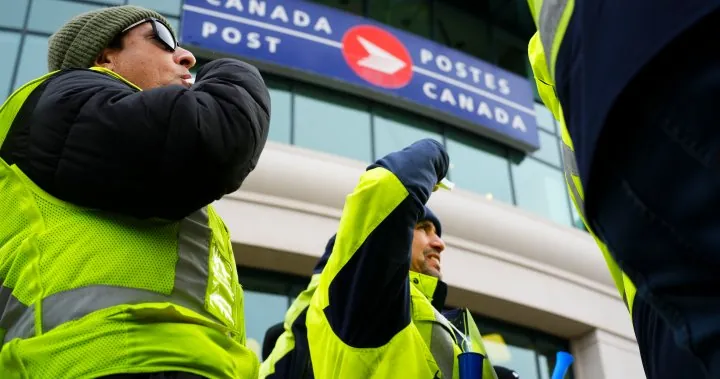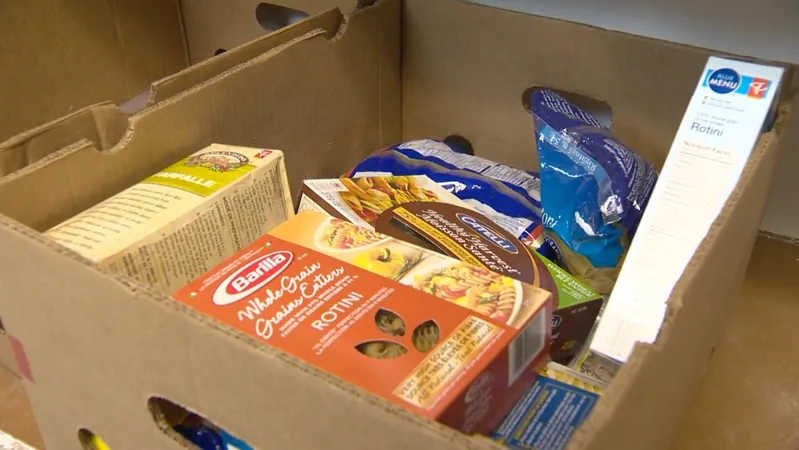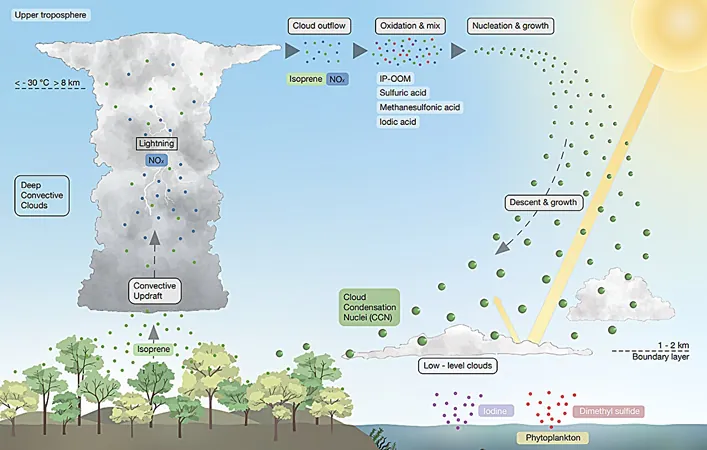
Canada Post Strike: Workers Demand Action as Holiday Crunch Approaches
2024-12-03
Author: Sophie
Canada Post Strike Overview
As the holiday season looms, negotiations between Canada Post and the Canadian Union of Postal Workers (CUPW) are intensifying amid an ongoing strike that has seen around 55,000 workers walk off the job. The stakes are high for both parties as they grapple with the critical need for resolution before Christmas, a peak time for postal deliveries.
CUPW Demands
At the heart of the negotiations are CUPW's demands for increased wages, better medical benefits, and a shift in the employment structure that would favor permanent positions over temporary roles. This ongoing dispute raises an urgent question: can Canada Post adapt to modern challenges while ensuring fair working conditions?
Negotiations and Responses
Recently, Canada Post announced it had provided a "comprehensive framework for reaching negotiated agreements," expressing hope that this would lead to productive discussions. However, CUPW National President Jan Sampson indicated that while the union is reviewing the proposal, significant progress has yet to be achieved. "We’re prepared to re-engage in mediation, but as of now, the mediator has not restated the process," she remarked.
Government Involvement
Labour Minister Steven MacKinnon added to the tension, stating there has been "no material progress" and dismissing the potential for binding arbitration at this time, emphasizing the necessity of compromise from both the union and management in navigating the postal service’s "obvious pivot point" in its operational history.
Temporary Workers' Concerns
One of the most pressing issues is securing permanent positions for temporary workers. Jim Gallant, a negotiator for CUPW, highlighted a shift in the workforce from full-time to temporary positions, causing growing concern for many employees. "With the high number of temporary workers, some of whom log full-time hours without the security that comes with such roles, we must address this trend," Gallant asserted.
Wage Proposals
CUPW proposes a 22% wage increase spread over four years, while Canada Post has countered with an 11.5% offer. The union's demands reflect a broader trend of stagnant wages failing to keep pace with escalating costs of living—especially significant in light of the government’s reported inflation rates and rising non-labour expenses, which have surged by over $1 billion between 2017 and 2023.
Impact on Small Businesses
The implications of the strike reach beyond the employees involved. According to the Canadian Federation of Independent Businesses (CFIB), the disruptions have led to an estimated loss of up to $1 billion for small businesses during a critical revenue-generating period. CFIB officials voiced serious concerns, pointing out that the strike could jeopardize sales and potentially lead to layoffs in the small business sector.
Caution Against Government Intervention
Experts caution against the government's possible intervention, arguing that prior erratic mediation could prolong the dispute rather than resolve it. Researcher Steven Tufts emphasized the complexity of the staffing and economic issues at stake, urging negotiations to proceed without enforced arbitration that may overlook the nuances of postal operations.
Conclusion
As CUPW and Canada Post inch toward negotiations amid looming holidays, the future of Canada's postal service hangs in the balance. Both sides are racing against time, hoping to strike a deal that will keep the post office relevant and sustainable while safeguarding the rights and benefits of its workers.
With the clock ticking down to Christmas, both postal workers and small businesses alike are praying for a swift resolution—because if the strike continues, it won't just be presents delayed, but potentially the future of what Canada Post can do for its citizens.









 Brasil (PT)
Brasil (PT)
 Canada (EN)
Canada (EN)
 Chile (ES)
Chile (ES)
 España (ES)
España (ES)
 France (FR)
France (FR)
 Hong Kong (EN)
Hong Kong (EN)
 Italia (IT)
Italia (IT)
 日本 (JA)
日本 (JA)
 Magyarország (HU)
Magyarország (HU)
 Norge (NO)
Norge (NO)
 Polska (PL)
Polska (PL)
 Schweiz (DE)
Schweiz (DE)
 Singapore (EN)
Singapore (EN)
 Sverige (SV)
Sverige (SV)
 Suomi (FI)
Suomi (FI)
 Türkiye (TR)
Türkiye (TR)